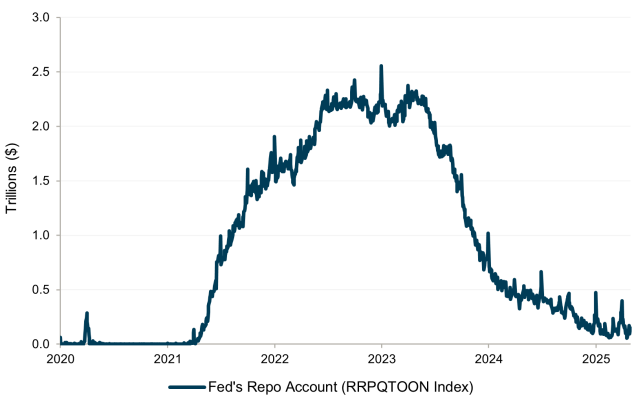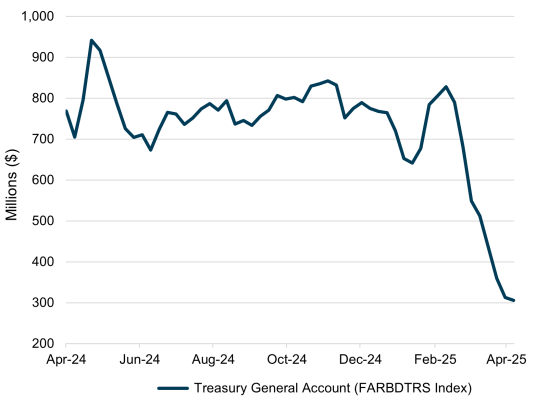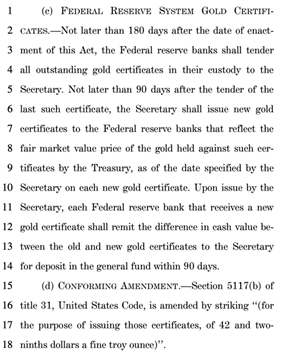So, by hook or by crook, Trump needs to find alternative ways of raising the cash and/or reducing the bill.
And this is where tariffs and the trade war enter the story.
Tariffs, love them or hate them, raise cash, perhaps not as much as Trump would hope, and perhaps not paid by the people that Trump would want, but they do represent an alternative revenue stream.
Every little helps.
Tariffs are also a demand shock: Trump will also be very aware from his Covid presidency that jamming a stick into the spokes of global trade is a very effective way of starting a global recession, and a recession, of course, can bring the Fed back into play: every 25bps rate cut shaves off 50bn in interest expense which is certainly not to be sniffed at. Likewise, recessions are usually a great way of enticing investors into the ‘safety’ of government bonds, which is handy if you need to go on an issuance spree. Throw in an equity market wobble and a little banking crisis, and the omnipotent money printer can be summoned to absolve all cashflow sins. Happy days.
Well, if that’s the plan (Occam’s razor would suggest it is), there is now some coherence to Trump’s machinations. But how is the plan working out? After all, if you knock several trillion in value off the equities markets, start a global recession, and destroy all international relations, I think you would be entitled to expect a little light interest rate relief from the bond markets.
Yet the bond market is not playing ball: Whether it’s a basis trade blowout, a bankrupting Japanese bank, Chinese dumping, or just a general loss of faith in US assets, yields have been spiking upwards. Not the best outcome in a government funding crisis. And then we see that the rollback of most of the world’s tariffs so soon after Liberation Day could just be the next round in the ratcheting tariff on/off cycle, or, as it appears to me, it could actually be the first Trump blink. But is there a plan B?










